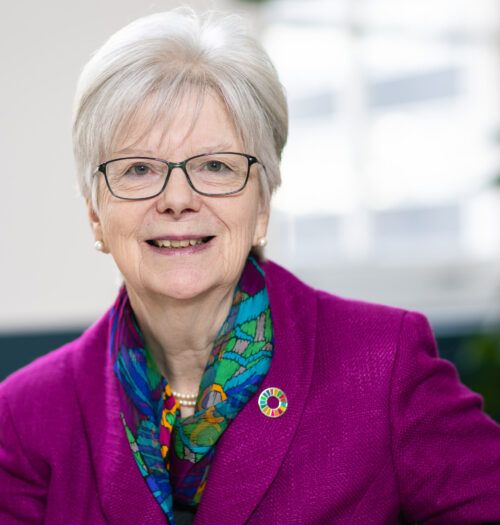
Chapter Zero Chair takes lead global role
Julie Baddeley, the Chair of Chapter Zero (UK), has today been appointed as the Chair of the governing board of the Climate Governance Initiative. Established in collaboration with the World Economic Forum, the Climate Governance Initiative mobilises boards of directors to address climate change around the world. There are now Chapters in more than 55 countries, from Brazil to Belgium.
Julie brings more than 20 years’ experience on boards across the FTSE 350, private and public sectors, and holds a number of non-executive positions from which she can help drive boardroom responses to climate change.
With a number of non-executive colleagues, Julie helped found Chapter Zero UK in 2019 and has already seen it grow to over 2,500 members including board members of 70% of the FTSE 100. She will bring her vision and determination to a global stage as Chair of the Climate Governance Initiative, supporting non-executive directors who are operating across diverse environments and multinational companies, facing particular challenges in grappling with complex supply chains and Scope 3 emissions.
During her tenure, Julie will also continue in her existing role as Chair of Chapter Zero.
It is an honour to be appointed Chair of the Climate Governance Initiative and to bring to the global Initiative my experience of helping build Chapter Zero over the past four years. We can only succeed in tackling climate change and grasping the opportunities reaching net zero presents if we work collaboratively across the world, and the huge reach of the initiative’s 100,000 members gives us a great opportunity to influence business globally.
Julie Baddeley
Julie’s incredible experience will be an asset to the global network and support the strong link between Chapter Zero and our 24 sister Chapters around the world in 56 countries. For Chapter Zero this international perspective will help grow our centre of excellence piloting best practice in the UK for global roll-out, strengthen our scope 3 and supply chain expertise and further build our programmes for directors of UK listed multi-national companies. We are delighted that Julie has been appointed as Chair of the Climate Governance Initiative which leads Chapter Zero’s global network.
Vicky Moffatt, CEO, Chapter Zero




